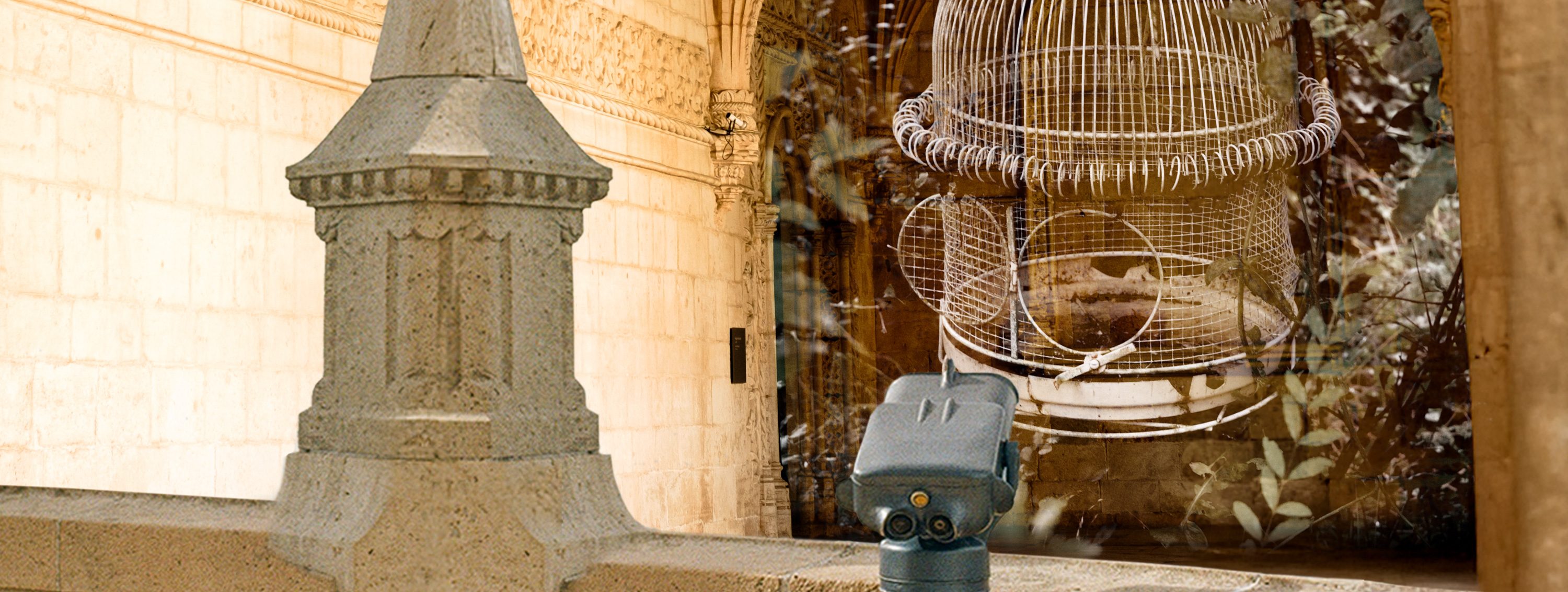About the Production
As Florestan wanted to expose Don Pizarro's brutal and lawless despotism, the latter had imprisoned him in a state prison run by him out of revenge, where Florestan was forced to vegetate under inhumane conditions.
In order to free him, his wife Leonore, disguised as a man under the name Fidelio, hires herself out as a jailer. And Leonore actually manages to prevent the planned murder of her husband by Pizarro at the last moment. And so the just minister, who arrives at the prison for inspection purposes, is able to set his friend Florestan and all the other political prisoners free again.
In some respects, Beethoven's Fidelio is still strongly rooted in the traditional Singspiel world, but at the same time points far into the future in terms of its emotionality and affinity to music drama. Not least in such unique passages as Florestan's feverishly visionary dungeon aria, Leonore's haunting invocation of hope, Pizarro's cruelly triumphant "Ha, what a moment!", the multi-layered, precious, floating quartet "Mir ist so wunderbar" and finally the frenetically erupting jubilant chorus at the end.
Ludwig van Beethoven only completed a single opera, Fidelio, but it came in three versions: First, Joseph Sonnleithner, director of the Theater an der Wien, translated and adapted Pierre Gaveaux' and Jean Nicolas' French rescue opera Léonore, ou L'Amour conjugal into German. Beethoven set this libretto to music and premiered it in 1805 under the title Fidelio. A year later, the first revision was published as Leonore, and finally in 1814 the last version, the version commonly used today, was published as Fidelio. Fidelio was deliberately chosen for the reopening of the Vienna State Opera after its destruction in the Second World War - as a symbol of hope, brotherhood and freedom regained after the Nazi dictatorship.
Fidelio
Storyline
The governor of a Spanish state prison, Don Pizarro, runs a reign of terror in his institution. Innocent people become political victims of his brutal grasp. Don Florestan from Seville wants to clear up these arbitrary acts, but ends up in the hands of the violent man himself. He has been languishing in inhumane solitary confinement for over two years.
His friends believe him to be dead, but his wife Leonore has not yet given up on the missing man. As she believes Florestan to be a prisoner, she hires herself out to the jailer Rocco as a closer. Dressed in men's clothes and under the name Fidelio, she performs hard labor, earns the trust of her superior and even wins the love of his daughter Marzelline.
Jaquino tries in vain to win Marzelline's affections. Since Fidelio has been in the house, she has not listened to his wooing. Fidelio returns from errands in Seville. Rocco is again impressed by his new assistant's skill and sense of duty: Fidelio and Marzelline are soon to become a couple. Marzelline and Rocco dream of a comfortable future, Jaquino sees his prospects dwindling and Fidelio dreads the uncertainty. Then Don Pizarro appears. He learns from a confidential letter that the minister is on the trail of his abuse of office: a surprise visit is to be made to him for good. Pizarro reacts promptly: a guard watches the main street, a trumpet signal is to announce the visit. Florestan, the most prominent victim, must be disposed of as quickly as possible.
As Rocco refuses to commit murder, the governor will carry out the deed himself. The only thing the jailer has to do first is dig him a grave in the dungeon. Marzelline and Fidelio ask Rocco to allow the lighter prisoners out for a short time. Full of joy, the prisoners enjoy the warm spring sunshine. Fidelio is dismayed to learn of Rocco's new assignment and wants to share his hard labor in the dungeon: Will she help prepare her husband's grave? Outraged, Pizarro has noticed the prisoners' walk and will accept no justification. Only the urgent plan to murder Florestan prevents dire sanctions.
In the dungeon, the exhausted Florestan ponders his fate. His situation seems hopeless to him; only the awareness of fulfilled duty comforts him. In an ecstatic vision, he feels transported to heavenly freedom by an angel with the features of Leonore. Rocco and Fidelio laboriously uncover a cistern. Florestan finally finds out who is in charge of this prison and wants to inform his wife in Seville. Fidelio now knows for certain who she is dealing with. A little refreshment with bread and wine seems to be Florestan's last joy, for Pizarro is already approaching. But as he prepares to strike a fatal blow, Fidelio stands in front of the prisoner: "Kill his wife first!" She holds a pistol in front of the pursuing man, and the trumpet sounds.
The arrival of the minister promises a turnaround: liberation for the oppressed, punishment for the oppressor. Pizarro hurries out of the dungeon, Rocco breaks away from his old master, Leonore and Florestan sink happily into each other's arms. - The people and the prisoners eagerly greet the minister, Don Fernando. On behalf of the king, he announces a general amnesty and the end of political despotism. In Florestan, he recognizes his friend who had been declared dead. Leonore is allowed to loosen the chains of the long humiliated man, Pizarro is arrested.



